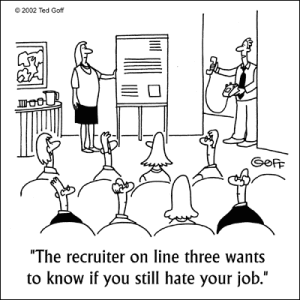I have been a business coach for almost six years and I hear the same question all of the time, “How do I make it, and will I be successful?”
I am always hesitant to answer that question because truthfully, there are a whole bunch of reasons why some people accomplish everything they put their mind to and why some people don’t. But, there is one thing that every successful person has in common, and it’s that they don’t reach their goals on their own.
Business could be booming or it could be slowing down, but the first step in your plan should always be to find a mentor.

Over the last half of a decade, I have helped people move their business forward, resolve problems, and completely change their industry focus. It doesn’t matter what level you’re at in your career path, or what growth stage your business is currently stuck in, a business mentor can provide a few different benefits that are essential to your success.
They are a levelheaded sounding board. Every business owner I have ever met; mentally lifts the Statue of Liberty every single day. A mentor can help alleviate some of that mental work. They are there to listen to your concerns, your ideas, and ask you questions to get you thinking in a different way. Consider it therapy for the entrepreneur.
They keep you accountable. A big struggle for young professionals and those branching out on their own is their ability to stay personally accountable. A mentor is someone that you have to answer to; they will hold you responsible to what you have made a commitment to achieve.
Help you stay focused on what’s important. It’s important to find balance, and as an entrepreneur that can be difficult. You need the time to renew and regenerate so that you can stay mentally and emotionally energized.
Keep you organized and productive. Having a scheduled appointment once or twice a month can keep you on track, especially if you know someone is going to ask what you’ve finished over the past few weeks. Having someone checking on your to-do list will make it much harder to justify procrastination.
They allow you to be better to your own clients. With a mentor or business coach, you feel emotionally supported in your business. When you feel supported, it makes it much easier for you to more efficiently prop up others.
Help you implement what you’re learning. It’s easy to take the notes and file them away for another time, but a mentor or coach can give you a plan that will help you implement what you’ve learned.
They increase your access to resources and network contacts. This is possibly the biggest ROI when it comes to a business coach or mentor. When you hit a crossroads in your business career, they will know who to put you in touch with. This industry experience and network size is invaluable to someone new to the industry, and will have you achieving your goals much faster than you would trying to do that networking on your own.
They are a cheerleader who is driven by their motivation to you. Working as a mentor and doing coaching sessions are some of the most motivating experiences that I can have on a day-to-day basis. There is absolutely nothing more inspiring to me than watching someone achieve his or her goals.
Sign me up for a mentor, I need one right now!
I am a true connector and I love helping people achieve the success that they dream about. Whether it’s introducing you to the right people, or helping you focus your business, I am motivated by your success.
Whatever mentor or business coach you choose, your head, heart and bank account will thank you.







